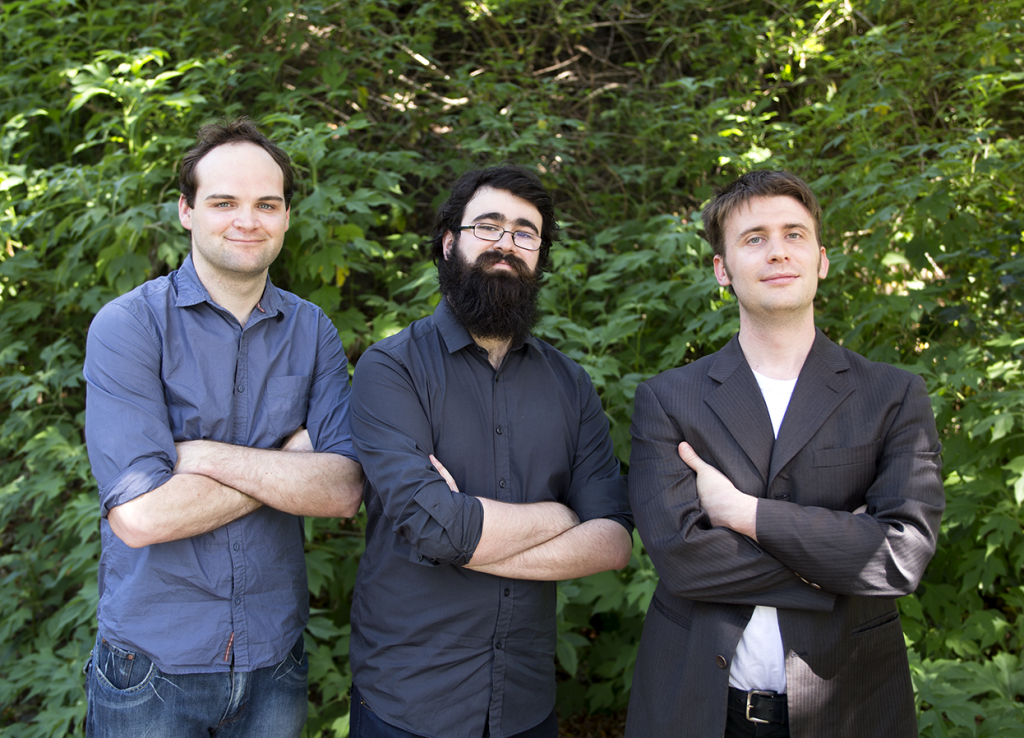Well Placed Cactus: IP in computer code and dealing with work under a sub-contract.

Image: Paul Stapelberg, Nic Gomez and Jack Gillespie from Well Placed Cactus. Photo by Laura Seeds Photography.
Well Placed Cactus specialises in the development of interactive games and apps that include serious cognitive testing games and gamified motion-sensing experiences. Well Placed Cactus approached Arts Law because they wanted to amend their standard contracts to better control the intellectual property they retained in their work, especially in the computer code.
“Computer code” consists of a set of instructions, written in a programming language, that the computer or other electronic device uses to perform its functions. Written code is capable of copyright protection and occasionally also patent or trade-secret protection too.
Well Placed Cactus had two standard contracts that they were using; one for clients and one for sub-contractors. Sometimes Well Placed Cactus’ clients were in fact other software companies sub-contracting their work out to developers like them to complete. Well Placed Cactus were conscious of the fact that when they worked on a sub-contract themselves the client would need the necessary rights to publish the final product, but they wanted to retain the right to reuse the computer code they had developed in future projects. Well Placed Cactus also wanted to be able to reuse code developed for them by their own sub-contractors whilst giving the sub-contractor the ability to have access to the code as well.
Arts Law referred the query to pro bono lawyer, Josh Cavaleri, formerly from the Interactive Games and Entertainment Association. As Josh explains: “Protecting and managing intellectual property from the very beginning is critical for game developers. Particularly when game developers are creating content for third parties, it is very important to clearly agree how the intellectual property in the content will be managed.”
Josh noted that the contracts as they were currently drafted didn’t provide what Well Placed Cactus wanted and made several suggestions for improvement including changes to definitions in the contract and the addition of a clause that introduced a ‘licence’ to allow sub-contractors to use the code they had created in certain ways.
Well Placed Cactus were pleased with the advice and felt the amendments correctly reflected their intentions. CEO Jack Gillespie said “Arts Law was able to provide us with valuable insight into the IP clauses in our contract which we used as a base for further more complex clauses. We were able to go into the lawyer’s office with a better understanding of the concepts at play which saved us money and time.”

Further resources:
- Game Development Services Agreement
- Computer Games: legal issues for creative designers information sheet
- Computer Game: Design and Development information sheet



